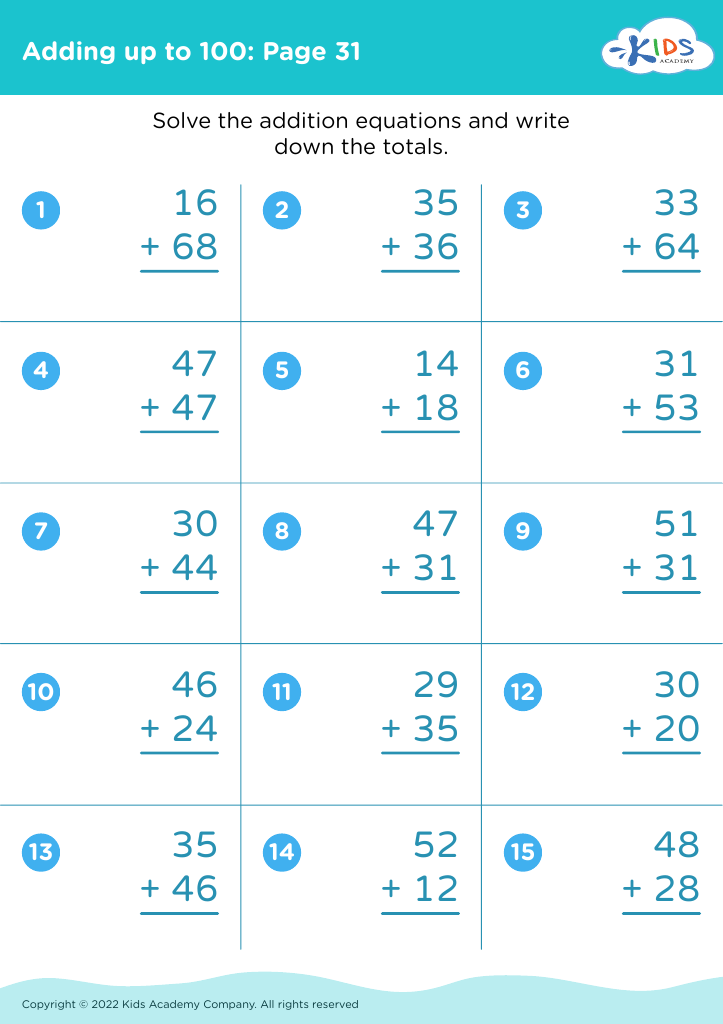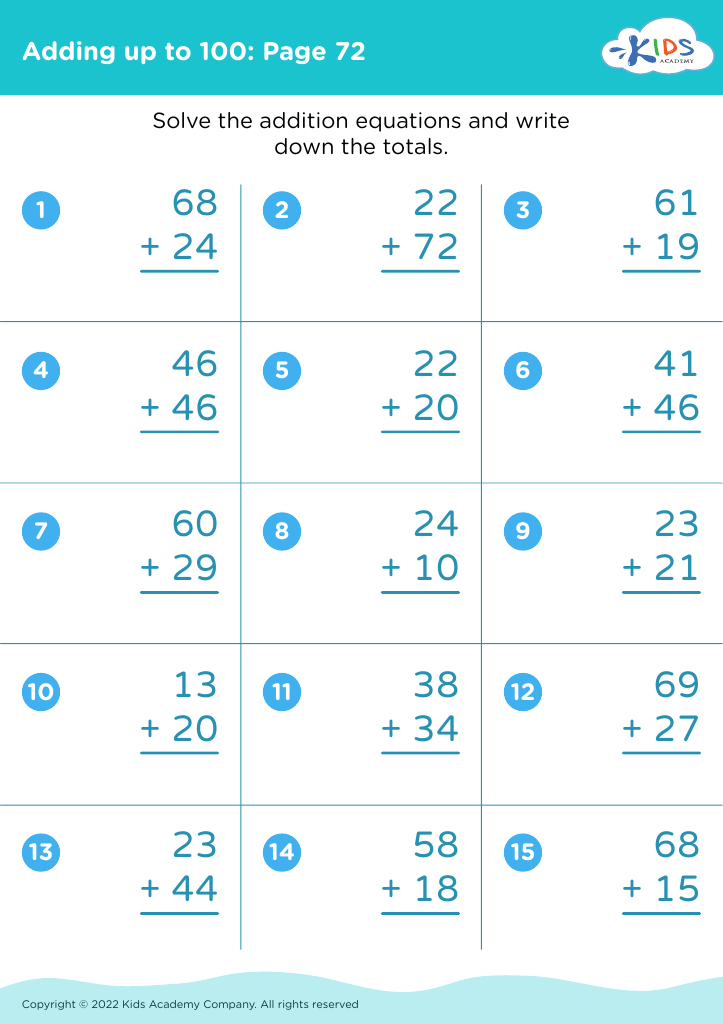Develop number recognition Addition Worksheets for Ages 6-7
5 filtered results
-
From - To
Enhance your child's mathematical journey with our "Develop Number Recognition and Addition Worksheets for Ages 6-7." Tailored specifically for young learners, these engaging worksheets combine fun activities with essential skills. Each worksheet focuses on numbers 1-20, promoting number recognition while seamlessly integrating addition practice. With vibrant illustrations and engaging formats, children will enjoy learning while building a strong foundation in mathematics. Our resources not only spark curiosity but also encourage independent problem-solving, making math enjoyable and effective. Empower your child to master early math concepts and boost their confidence with our thoughtfully designed addition worksheets. Start their math adventure today!
Number recognition and addition are foundational skills for children aged 6-7 that are crucial for their overall mathematical development. At this stage, children are transitioning from basic number understanding to applying that knowledge in more complex ways. Developing strong number recognition skills helps children quickly identify and understand numbers, which is essential for mastering addition.
When parents and teachers emphasize these skills, they lay the groundwork for students’ future success in math and related disciplines. Strong number recognition aids in reducing math anxiety, builds confidence, and cultivates a positive attitude toward learning. Engaging children in fun activities, such as games and visual aids, can make the learning process enjoyable and stimulate their interest in mathematics.
Moreover, proficiency in number recognition and addition is critical for real-world applications. Children encounter these concepts daily, from counting objects to handling money. By fostering these skills at an early age, parents and teachers not only contribute to academic success but also enhance critical thinking and problem-solving abilities. Consequently, prioritizing number recognition and addition will empower children, providing them with the tools necessary for lifelong learning and effective participation in an increasingly numerate world.



























